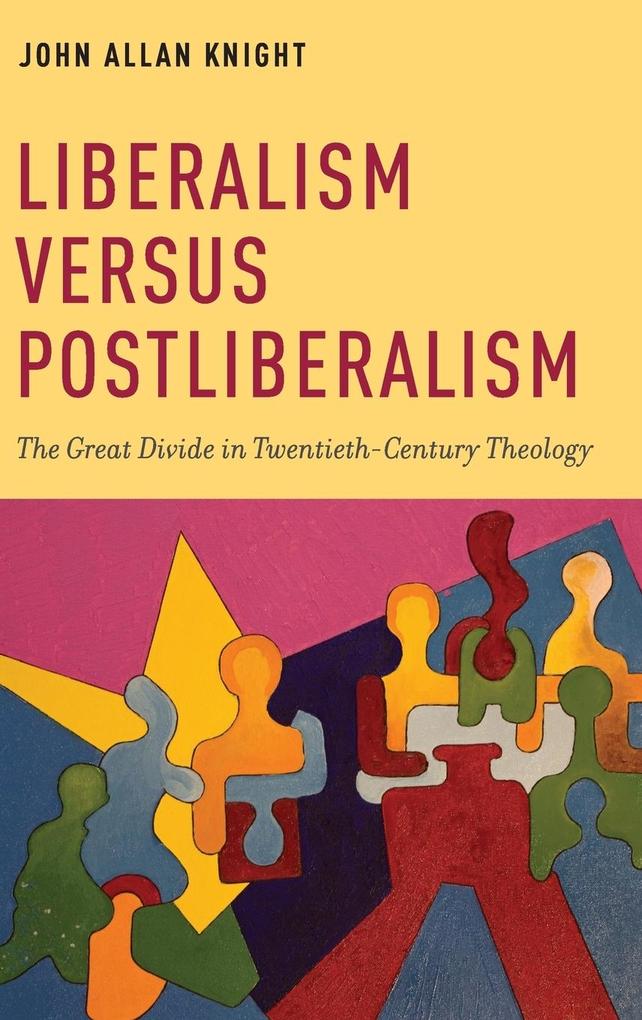
Zustellung: Sa, 05.07. - Do, 10.07.
Versand in 2 Wochen
VersandkostenfreiBestellen & in Filiale abholen:
The book provides an original analysis of the central philosophical differences between liberal and postliberal theology. Knight argues that important developments in philosophy of language reveal serious problems with the central methodological commitments of liberalism and postliberalism and suggest ways in which the divide can be bridged.
Inhaltsverzeichnis
- Table of Contents
- Acknowledgments
- Introduction
- Part One: Liberal Theology and the Falsification Challenge
- Chapter 1: Liberal Theology in the Nineteenth and Early Twentieth Centuries
- Chapter 2: The Falsification Challenge
- Chapter 3: The Liberal Response
- Chapter 4: A Purified Liberal Theology
- Part Two: Postliberal Theology and Ordinary Language Philosophy
- Chapter 5: The Barthian Project in Postliberal Perspective
- Chapter 6: Allies for Barth's Heirs: Wittgenstein and Ordinary Language Philosophy
- Chapter 7: Earlier Postliberalism: Narrative Theology and Hans Frei's Synthesis of Wittgenstein and Barth
- Chapter 8: Postliberalism II: George Lindbeck and Frei's Later Work
- Part Three: Problems and Prospects
- Chapter 9: A Tale of Two Dead Ends: The Linguistic Problems of Liberal and Postliberal Theology
- Chapter 10: Conclusion: Navigating the Divide Between Liberal and Postliberal Theology
- Bibliography
Produktdetails
Erscheinungsdatum
14. Dezember 2012
Sprache
englisch
Seitenanzahl
336
Autor/Autorin
John Allan Knight
Verlag/Hersteller
Produktart
gebunden
Gewicht
544 g
Größe (L/B/H)
239/155/30 mm
ISBN
9780199969388
Entdecken Sie mehr
Pressestimmen
"This was one of the most interesting, thought provoking, and well-written books I have had the pleasure of reading in quite a while. The treatment of the relevant literature here is stellar. In addition to his insightful discussion of the major thinkers and developments, Knight's knowledge of the nuances of this long-standing conversation is impressive. The book will have a considerable impact on the field."--Mary Doak, author of Reclaiming Narrative for Public Theology
"This book is a clearly written, carefully argued, and insightful account of some of the basic features that distinguish 'postliberal' theology from both earlier and contemporary forms of 'liberal' theologizing. The scholarship is sound, the interpretations are clear and accurate, and the author's emphasis on religious language offers a distinctive perspective from which to survey recent theological developments."--Michael Raposa, Professor of Religion Studies and Philosophy of Religion, Lehigh University
"Knight ties disputes between Christian theological liberals and postliberals to a specific period in the history of the philosophy of language. He convincingly argues that both the liberal and postliberal positions required adherence to unacceptable views regarding how language works, and that more recent (i.e. post-Kripkean) developments offer a more promising basis for philosophically informed theological work. This is a well-written, important, and timely book."--Andrew Dole, author of Schleiermacher on Religion and the Natural Order
"Writing with extraordinary charity and clarity about the liberal and post-liberal theological alternatives by focusing on debates surrounding the issue of falsification, Knight helps us understand why issues in the philosophy of language are at the heart of these important alternatives. Not only does this book have the virtue of reminding us of the importance of the falsification debates, but it offers a constructive way to appreciate both th
"This book is a clearly written, carefully argued, and insightful account of some of the basic features that distinguish 'postliberal' theology from both earlier and contemporary forms of 'liberal' theologizing. The scholarship is sound, the interpretations are clear and accurate, and the author's emphasis on religious language offers a distinctive perspective from which to survey recent theological developments."--Michael Raposa, Professor of Religion Studies and Philosophy of Religion, Lehigh University
"Knight ties disputes between Christian theological liberals and postliberals to a specific period in the history of the philosophy of language. He convincingly argues that both the liberal and postliberal positions required adherence to unacceptable views regarding how language works, and that more recent (i.e. post-Kripkean) developments offer a more promising basis for philosophically informed theological work. This is a well-written, important, and timely book."--Andrew Dole, author of Schleiermacher on Religion and the Natural Order
"Writing with extraordinary charity and clarity about the liberal and post-liberal theological alternatives by focusing on debates surrounding the issue of falsification, Knight helps us understand why issues in the philosophy of language are at the heart of these important alternatives. Not only does this book have the virtue of reminding us of the importance of the falsification debates, but it offers a constructive way to appreciate both th
Bewertungen
0 Bewertungen
Es wurden noch keine Bewertungen abgegeben. Schreiben Sie die erste Bewertung zu "Liberalism Versus Postliberalism" und helfen Sie damit anderen bei der Kaufentscheidung.









